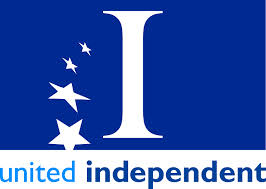Submitted by Fred Hewett
 On January 18, 2015 the Boston Ethical Community will host a talk by Evan Falchuk, 2014 candidate of the United Independent Party for governor of Massachusetts.
On January 18, 2015 the Boston Ethical Community will host a talk by Evan Falchuk, 2014 candidate of the United Independent Party for governor of Massachusetts.
In that race, Falchuk succeeded in getting more than 3% of the vote, thereby conferring official status on the United Independent Party. This means that the party can hold primaries and voters can register under the party’s banner.
Historically, third parties have been criticized for the spoiler effect, i.e., splitting the vote with more viable candidates of similar politics and thereby enabling an opposing candidate to win. Some Democrats harbor resentment against Ralph Nader for his role in the presidential election of 2000, when the small percentage of the vote he received would have been enough to make Al Gore the decisive winner in Florida.
In the case of Falchuk, it’s not completely clear which of the two major-party candidates for governor benefited most from his presence in the race, but the positions of the UIP, termed “pragmatic progressive”, are closer to those of the Democrats than the Republicans.
Falchuk’s position is that each candidate earns the votes that he or she receives. One of the main thrusts of his candidacy centered around the idea that many people are disengaged from the political process, and that a new party is needed in order to boost participation in civic life. He, like Nader in 2000, asserts that many of those who voted for him might well have not voted at all if the ballot had been limited to just the major parties.
Without doubt, voters in Massachusetts show a great deal of frustration with the limitations of either “R” or “D”. In fact, 53% of the state’s voters are now unenrolled in a party, making “I” the new majority. The election of a Republican governor pitted against a Democratic legislature is further indication that voters are not whole-heartedly embracing either major party.
What lies ahead for Falchuk and the UIP is an uphill effort to expand the base. There is no election for statewide offices in 2016, so the hard-won designation as an official political party will be lost if the UIP fails to register 1% of voters. The party must now mobilize to grow its ranks.
The deep disaffection that so many people feel toward conventional politics aligns well with the UIP’s aim. If they can build a convincing argument that they offer something other than ideologically-driven party politics to which we’ve grown accustomed, then perhaps they have a shot. There are strong undercurrents for change in the political world right now, and they could catch that wave.
Join us on January 18th to hear more from Evan Falchuk and the United Independent Party.
